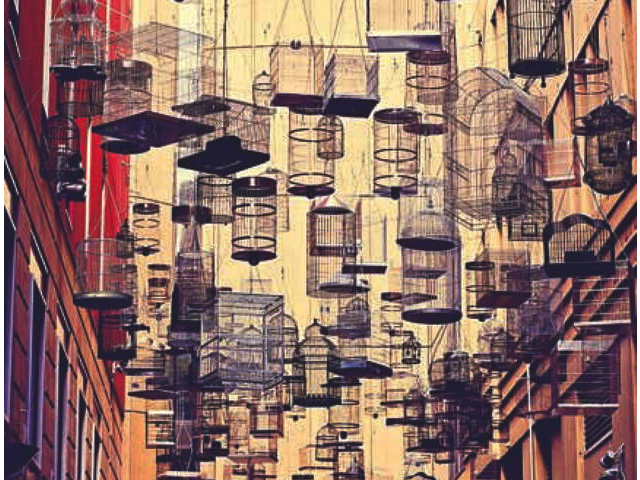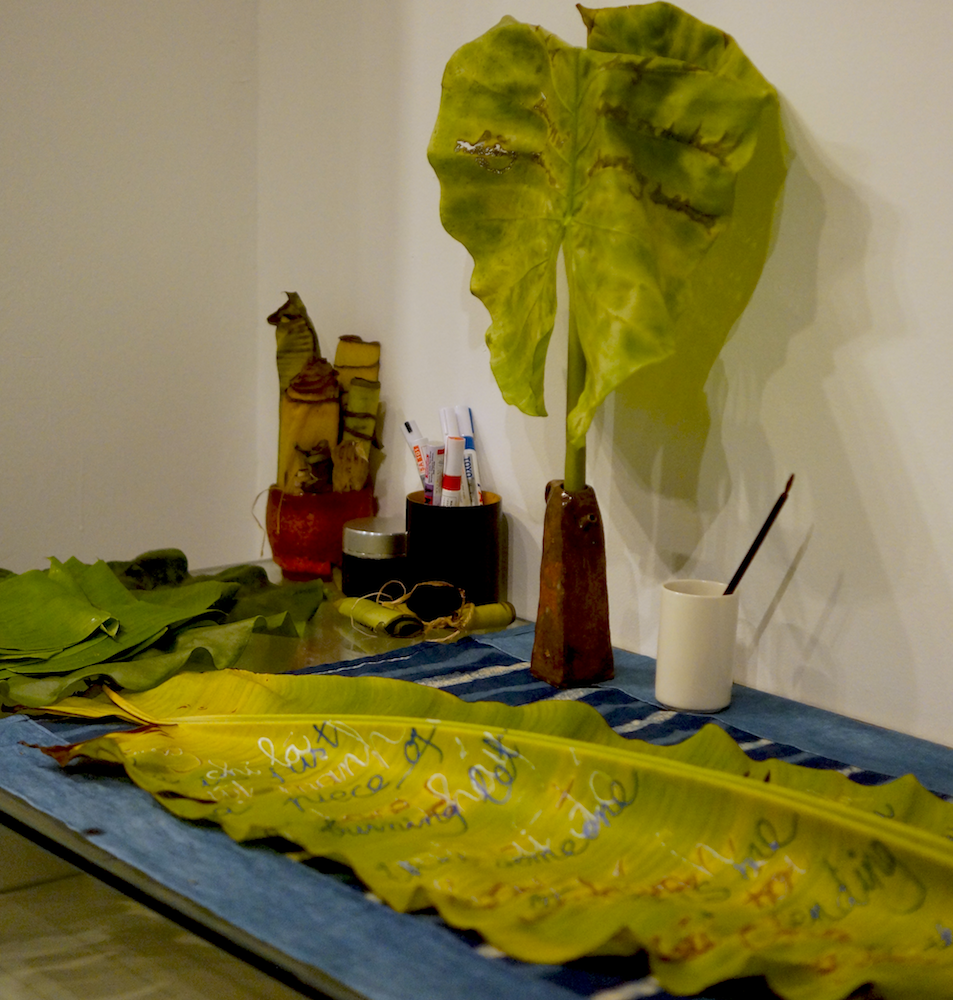My mother left my father more than once. A favorite / family tradition observed when I was four. / Ten. Eleven. Twelve. Leaving is easier / the second time.

March 24, 2015
This week we bring you three poems from Eugenia Leigh’s recently published debut poetry collection, Blood, Sparrows and Sparrows, which Eduardo C. Corral calls “brutal and brilliant.” Eugenia’s poems render me breathless, not only with her bold and unflinching confrontation with God and violence, but also with her capacity for love. Her poems teach us that it is okay to keep questioning, and that one can soar above a history of trauma by finding forgiveness for others as well as oneself. Don’t miss the trailer for the book on her website.
—Emily Yoon
Monsters
The first time I imagined harming a man,
I was twelve. I imagined that cop
quivering in my fists.
He’d paraded my sister and me
like two prized rats. Bragged, We rescued them
from their kidnapper, and my mouth
sutured shut. I uncapped a permanent marker. Scrawled
onto my arms, Please help. Monsters have stolen my dad.
When our dad ran from California—first on foot,
then by bus—did he drag us out?
Or did my sister and I chase him? He disguised us
as boys. We left our mom
messages from payphones. Survived on fries.
And the morning he was arrested
outside that Wisconsin hotel, I stitched into my eyelids
that image of him clinched in handcuffs, mouthing
assurance from the back of that howling car.
Nine years later, at Incheon International Airport,
I don’t recognize him, cloaked in monstrous welts.
How does he know to run to me,
older than Mom was when I was born?
I had pretended it was a bus trip across the country—
our first family vacation. How could I know
my dad flushed my hair down that hotel toilet
because every cop—everywhere—was studying my photo?
When he’d joked about changing our names, my sister cried.
Did she believe that word? —kidnapper?
I should have said, I asked my dad to take me.
I should have said, I promised him
I could be a boy for as long as he needed.
Sex and Horseradish
My mother left my father more than once. A favorite
family tradition observed when I was four.
Ten. Eleven. Twelve. Leaving is easier
the second time. Like sex. Distance is an acquired
taste. Horseradish. When I first touched
a boy, I lusted for that stench
of begging. I would trap the boy in his car. Demand
he drive to the airport and park. He would reach
between my jeans. I would cry. Beg.
For no reason. Then he’d also beg and I’d let him
drive back to his large house. Let him
see his married parents again.
I left that boy. Then left the next one. Then left the next
and the next and when one tried to leave me, I tied
that one to my neck. He stayed for years
until I left him, too. Flew away,
really—his body, hanging
from my body.
Testament
A small woman lives in a flowerpot in my closet.
She hates light. Brandishes her fists
when she speaks. Not speaks—
mocks. She asks about my parents: tell me a tragedy.
I’ve practiced that tragedy.
But this is the truth:
I never feared him. I feared her—her radiance, her hymns.
My fear being resistance to the impossible.
The impossible, a woman who endured.
He never said one kind word to her.
My father, I mean. To my mother, I mean.
Where did she gather those You are beautifuls
for my sisters and me? How did she never empty of warmth?
The small woman in the flowerpot loathes
my mother’s clean, clean bones.
She once dared me to spit in my mother’s face.
(She didn’t spit back.)
When I was fifteen, my mother found me
in a bookstore with a boy pressed against my body—his muscles,
his jaw. I let him mark me.
After years of raking her bruises
away from her daughters, that was the only night
my mother let me see her cry.
When God passed out mothers to all the beastly children
and wives to all the beasts,
how did he misplace my mother in that wrong pile?
And yet, her devastating joy. That rosy voice
insisting, insisting God is good.
“Monsters,” “Sex and Horseradish,” and “Testament” by Eugenia Leigh from Blood, Sparrows and Sparrows (c) 2014. Appears with permission of Four Way Books. All rights reserved.



